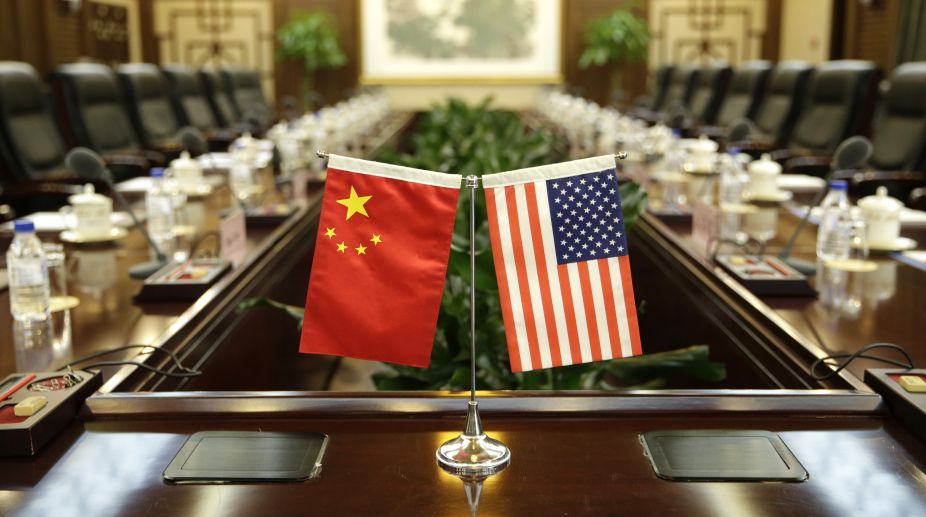Aligarh’s famous lock industry set to gain from US-China tariff standoff
The ongoing US-China tariff war has created a golden opportunity for Aligarh’s lock industry. A hub for locks, Aligarh is rapidly strengthening its global market position.
The United States has also said it would look into tariffs against longtime allies like Canada and countries within the EU
ANN | Bangkok | June 5, 2018 11:11 am

(Photos: AFP)
The US and China reached an agreement in mid-May that many pundits said had averted a trade war.
A delegation led by Vice-Premier Liu He had “positive, pragmatic, constructive and fruitful” with a US team headed by Treasury Secretary Steven Mnuchin which resulted in a joint statement vowing not to be bogged down in a trade war.
Advertisement
China also promised to buy more US goods if the US would halt its tariffs program.
Advertisement
The deal was hailed by pundits and by sectors hit by reciprocal tariffs as cooler heads prevailing and normalcy resuming.
Just weeks prior China had imposed levies on $3 billion worth of US fruits, nuts, pork and wine to protest the Trump administration’s move to impose tariffs on steel and aluminium imported from China.
Not quite back to square one
Now, as the two sides sit down to negotiate the deals that would take place across the numerous sectors where the US accuses China of unfair trade practices, more roadblocks have appeared.
In response, China has warned that agreements to buy more American goods will be void if Washington goes ahead with sanctions and other punitive trade actions, according to the Straits Times.
Beijing’s stance, spelt out on Sunday (June 3), came after US Commerce Secretary Wilbur Ross and Chinese Vice-Premier Liu He concluded two days of talks on trade issues here that were overshadowed by the renewed threat of tariffs announced by the White House last week.
In a surprise move, the White House said it would proceed with imposing tariffs on US$50 billion (S$66.9 billion) worth of imported Chinese goods, with the final list to be announced on June 15.
The White House also said it will pursue tighter restrictions on Chinese investments and enhance export controls to protect US technology and intellectual property.
No allies
The United States has also said it would look into tariffs against longtime allies like Canada and countries within the EU.
While the Chinese have said they would not pursue a trade war, Emmanuel Macron of France and Justin Trudeau of Canada explicitly said that the Trump’s administration on tariffs would force both those countries into an all-sides-lose trade war.
The actions of the US have resulted in severe isolation in the G7 meeting in British Columbia, Canada on Friday.
Group of Seven finance ministers ended their annual meeting on Saturday with US allies united in condemning Washington’s protectionism, calling on President Donald Trump to reverse his decision to impose punishing metal tariffs, according to the China Daily.
Announcing the meeting’s close, Canadian Finance Minister Bill Morneau said the host government and five others had urged Mnuchin to relay their “unanimous concern and disappointment”.
“We said that we were collectively hoping that he would bring the message back of regret and disappointment at the American actions and concern that they are not constructive,” said Morneau.
French Finance Minister Bruno Le Maire also expressed France’s outrage as the meetings ended.
“I want to make it clear,” Le Maire said, “that it is up to the US administration to make the right decisions to alleviate the situation and ease the difficulties.”
Avoiding trade war “will depend on the decision the (US) administration is ready to take in the next few days and in the next few hours – -I’m not talking about weeks ahead,” he added.
Chinese Response
China has tried to remain cordial as it tries to negotiate the different personalities that the Trump administration can assume.
An official Chinese statement issued after the latest round of talks said that China and the United States achieved positive and concrete progress in the fields of agriculture and energy during the latest round of trade consultations.
But as the Straits Times reported, Chinese media reports framed the lack of concrete outcomes in the latest round of talks with the United States as Beijing’s way of driving home the point that no substantial discussions can take place when the threat of tariffs looms large.
Advertisement
The ongoing US-China tariff war has created a golden opportunity for Aligarh’s lock industry. A hub for locks, Aligarh is rapidly strengthening its global market position.
Philippines which lies in the Asia-Pacific region has vital geostrategic importance for both the US and China amid increasing tension between the two powerhouses, reported Beijing News.Net.
Earlier on Tuesday, the White House said that Russia’s invasion of Ukraine is a likely topic during the call.
Advertisement
